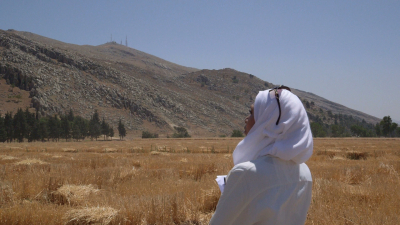


Scientists displaced by conflict and hardship need international support. And a recent workshop has now officially moved a new at-risk, displaced and refugee scientists’ initiative into a new phase of global public engagement.
For months the project, now called the Science in Exile initiative, has been in a planning stage. The workshop’s goal was to set in motion the initiative’s next phase, focused on beginning activities and setting long-term objectives.
The workshop took place over the Zoom platform, in three meetings—on 30 March, 1 April and 12 April—spread across two weeks to allow time for discussion and reflection. The meetings included presentations, round tables, open discussions and feedback gathered through a polling software. It included about 70 people from countries throughout the world: Australia, Bangladesh, Belgium, Canada, China, Egypt, France, Germany, Iran (Islamic Republic of), Iraq, Italy, Nigeria, Norway, South Africa, Switzerland, the Syrian Arab Republic, the United Kingdom, the United States and Yemen. A broad range of stakeholders participated—from individuals to representatives of the United Nations, other international organizations, non-governmental organizations, universities, governments, scientific institutions and diaspora groups to at-risk, displaced and refugee scientists themselves.
The Science in Exile initiative was established through a partnership between UNESCO-TWAS, the International Science Council (ISC) and the InterAcademy Partnership (IAP), under the umbrella of Science International, and work began on the launch in 2020. The initiative aims to create a network of like-minded organizations working together to develop a platform and roll out an advocacy campaign, so as to foster a cohesive response for the support of at-risk, displaced and refugee scientists.
“We need to understand from scientists in exile themselves how best we can support them,” said Mathieu Denis, Science Director of ISC. “This is a moral duty. And as international science organizations, we must ensure that they are not lost for science, and can help rebuild their country in the future, shall they decide so.”
“This is a complex issue with many nuances. Worldwide, there is still suspicion and resistance in welcoming refugees, but also success stories we must share,” said Peter McGrath, Coordinator of UNESCO-TWAS Science Diplomacy programme and of IAP. “We must use Science International as leverage to engage the broader scientific community, including the engagement of more organizations from the global South, as this is where the majority of the at-risk, displaced and refugee scientists are living.”
Participants said the workshop motivated them to be active as volunteers for the initiative, partner with like-minded organizations, build a network with good practices and global reach, and learn more about the challenges faced by refugee and displaced scientists.
This article was written by TWAS Staff Writer Sean Treacy and was originally published on the TWAS website.
Scientific products and artefacts lost in humanitarian crises
“In cases where a country is entering a situation of war or civil strife or has experienced humanitarian disasters such as floods, earthquakes or catastrophic fires, what happens to academic libraries, museum collections and other collections of scientific products and artefacts, such as scientifically valuable collections of local insects or libraries of national papers, journals and books?”
During the Science in Exile launch workshop, this issue was flagged as yet another casualty of conflict and other humanitarian emergencies, one that can erase invaluable scientific and cultural knowledge from the collective history and future of a country or region. Most of the programmes involved in the preservation of knowledge focus on cultural heritage. While this often includes scientific collections, libraries and archives, natural history museums or national archives, there is less of a scientific lens with regards to the preservation of scientific and technical knowledge and culture.
We would like to get a fuller picture from scientists and IAP member academies around the world on the extent to which scientific products and artefacts are lost in humanitarian crises. Therefore, please provide us with your feedback, both in terms of the situation in your country of origin or the country you are currently working in with regards to your scientific discipline and any mitigation or response measures taken by your disciplinary body or institution. To share your response by 25 May 2021 visit: https://council.science/science-in-exile-your-input-requested/.
The Call for applications to present in the Science in Exile panel at the Sustainability Research & Innovation Congress 2021 (SRI2021) is now open. The deadline is 21 May 2021. Applications must be submitted though the online form available on the project page on the TWAS web site.
